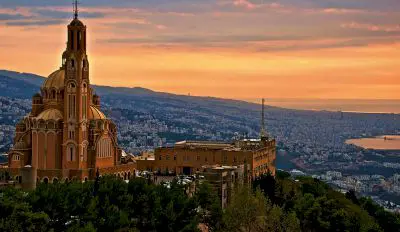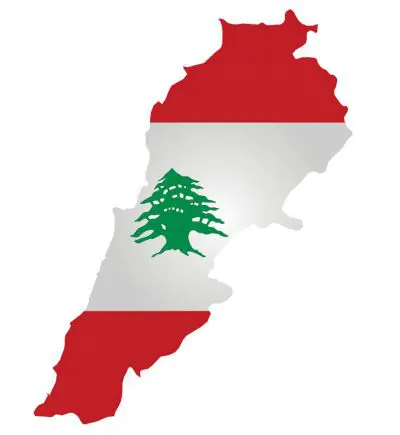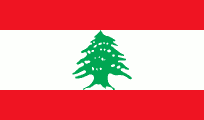Lebanon's Market Overview
Lebanon is an Asian country on the shores of the Mediterranean Sea with a history of several thousand years of civilization. The Lebanese economy is characterized by a combination of sectors, including services, industry, and agriculture. Precious stones, fertilizers, salt, iron ore, and cement are major mineral products of Lebanon. Road, rail, sea, and airlines between Lebanon and the countries is examined as a key infrastructure for the delivery of goods and commercial cargo. Lebanon has an extensive road network that connects major cities, towns, and regions throughout the country.
Geography and Political Structure of Lebanon

Lebanon is characterized by its mountainous terrain, with the Mount Lebanon range running parallel to the Mediterranean coast. This geography has historically led to the division of Lebanon into distinct regions and communities. The mountains have acted as natural barriers, isolating different communities and contributing to the formation of separate political entities. Lebanon's political structure is based on a system known as confessionalism, which allocates political power among various religious communities proportionally. This system emerged as a way to accommodate the diverse religious and ethnic groups within the country. The mountainous geography has facilitated the preservation of distinct religious and ethnic communities, which are given political representation in the government.
Lebanon's geography, including its coastline and favorable climate, has played a crucial role in its economic activities. The country has a long history of trade and commerce, with its ports serving as important hubs. Economic interests have often intersected with political power, and different regions and communities have vied for control over economic resources and opportunities. Lebanon is an Asian country on the shores of the Mediterranean Sea with a history of several thousand years of civilization. The region was one part of the Levant and became an independent state after the collapse of the Ottoman Empire. The majority of the population is Muslim. Several tribes are living in Lebanon. About 30% of the country's population is Shiite.
Geography and Political Structure of Lebanon, Read More ...
Add your import and export orders to this list
Warning: Undefined variable $formTitle in /home/anbar/domains/anbar.asia/anbar/inc/html/desktop/orderform.php on line 10
Warning: Undefined variable $marketName in /home/anbar/domains/anbar.asia/anbar/inc/html/desktop/orderform.php on line 12
Warning: Undefined variable $location in /home/anbar/domains/anbar.asia/anbar/inc/html/desktop/orderform.php on line 12
If you want to trade in the , please join in Anbar Asia. Your order will be shown here, so the traders of contact you

Lebanese Economy

The Lebanese economy is characterized by a combination of sectors, including services, industry, and agriculture. The services sector has traditionally been the largest contributor to the economy, accounting for a significant portion of GDP. Key service industries include banking and finance, tourism, real estate, and telecommunications. The industrial sector encompasses manufacturing, construction, and energy, while agriculture contributes a smaller but still significant share to the economy.
Lebanon has faced a severe economic crisis since 2019, characterized by a combination of factors, including a banking sector crisis, high public debt, corruption, political instability, and the impact of regional conflicts. The crisis has led to a sharp depreciation of the Lebanese currency (the Lebanese pound), soaring inflation, high unemployment rates, and a decline in living standards. The country has struggled with shortages of basic goods, including fuel, electricity, and medication. The Lebanese government has sought international assistance to address the economic crisis. The country is engaged in negotiations with international financial institutions and donors to unlock funds and implement economic reforms. These reforms aim to address structural issues, improve governance, enhance transparency, and restore confidence in the economy.
Lebanese Economy, Read More ...
![]() Lebanon Natural Stones Market
Lebanon Natural Stones Market![]() Lebanon Minerals Market
Lebanon Minerals Market![]() Lebanon Petroleum Market
Lebanon Petroleum Market![]() Lebanon Gemstones Market
Lebanon Gemstones Market![]() Lebanon Construction Materials Market
Lebanon Construction Materials Market![]() Lebanon Chemicals Market
Lebanon Chemicals Market![]() Lebanon Metals Market
Lebanon Metals Market![]() Lebanon Petrochemicals Market
Lebanon Petrochemicals Market![]() Lebanon Real estates Market
Lebanon Real estates Market![]() Lebanon Food Market
Lebanon Food Market![]() Lebanon Crops Market
Lebanon Crops Market![]() Lebanon art and craft Market
Lebanon art and craft Market
Major Products of Lebanon

Despite its small size, Lebanon has a diverse agricultural sector that produces a range of products. Some of the main agricultural products include olives, citrus fruits, apples, grapes, vegetables, dairy products, and poultry. Lebanon is renowned for its high-quality olive oil and wine production, which are exported to international markets. Lebanon has a well-developed food processing industry that adds value to agricultural products. Processed goods such as canned fruits and vegetables, dairy products, olive oil, jams, and preserves are produced in Lebanon. Traditional Lebanese food products like hummus, tahini, and baklava are also popular and exported.
Lebanon has a well-established pharmaceutical industry that produces a wide range of pharmaceutical products, including generic drugs and medical supplies. Lebanese pharmaceutical companies manufacture both for the domestic market and for export to other countries in the region. The services sector plays a significant role in the Lebanese economy. Lebanon is known for its banking and financial services, which have traditionally attracted deposits and investments from both domestic and international clients. Other services, such as tourism, hospitality, telecommunications, and IT services, are also important contributors to the economy.
Major Products of Lebanon, Read More ...
Transportation Infrastructure of Lebanon

Lebanon has an extensive road network that connects major cities, towns, and regions throughout the country. The main highway is the Beirut-Damascus Highway, which links Beirut to the Syrian border. Other major highways include the Beirut-Tripoli Highway, Beirut-Saida Highway, and the Beirut-Tyre Highway. However, poor road conditions, traffic congestion, and lack of proper maintenance have been persistent issues in Lebanon.
Taxis are widely available in Lebanon, particularly in urban areas. They can be hailed on the street or found at designated taxi stands. Taxis in Lebanon operate on a shared basis, meaning multiple passengers may share a ride if they are traveling in the same direction. Taxis can also be hired for longer trips or on an hourly basis. Lebanon has one international airport, Beirut-Rafic Hariri International Airport, located in the southern suburbs of Beirut. It serves as the main gateway for air travel to and from Lebanon. The airport offers both domestic and international flights, connecting Lebanon to various destinations worldwide. However, the economic crisis has led to reduced flight options and increased airfare.
Transportation Infrastructure of Lebanon, Read More ...
Transport ways of Lebanon

Lebanon has an extensive road network that connects major cities, towns, and regions throughout the country. The road system includes highways, national roads, and local roads. The main highways, such as the Beirut-Damascus Highway, Beirut-Tripoli Highway, and Beirut-Saida Highway, connect major cities and towns. However, road conditions can vary, and traffic congestion is a common issue, especially in urban areas.
Lebanon has one international airport, Beirut-Rafic Hariri International Airport, which serves as the main gateway for air travel. It offers domestic and international flights connecting Lebanon to various destinations worldwide. The airport is located in the southern suburbs of Beirut and provides various transportation options to and from the city. Asphalt airport and three dirt airports. The Biaraut International Airport has the most facilities and equipment in those planes and large foreign flights are also possible to land.
Transport ways of Lebanon, Read More ...

















